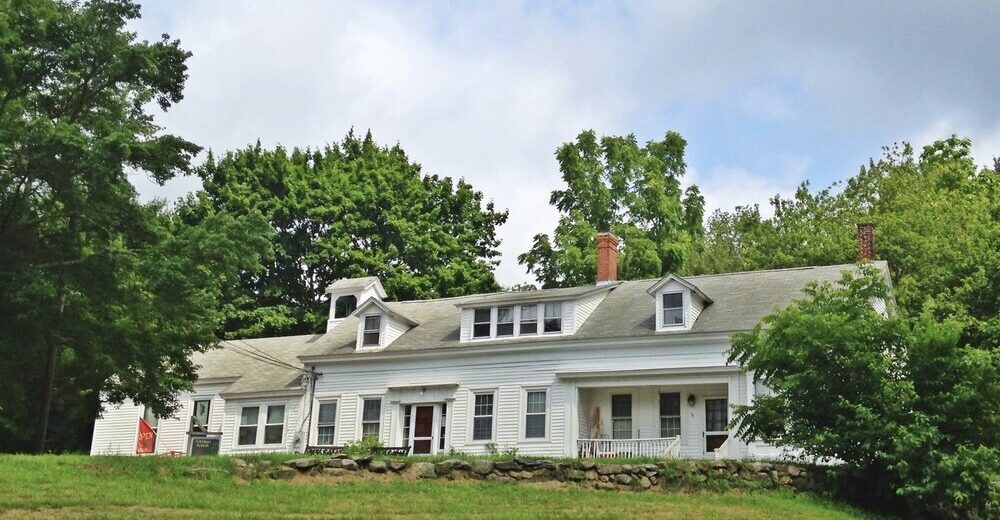Although Stolen Relations started out in 2015 as a mostly academic project, the team members realized over time that it needed input from and collaboration with the Indigenous nations in New England who were most directly affected by settler colonialism. In 2019 the project as a whole took a more intentional turn toward community collaboration in order to help decenter the power of the archive and to ensure Indigenous voices and perspectives were incorporated into the project. Since then, we have relied on dozens of community members (both local and non-local to the Providence region) to ground us through their diverse perspectives. In today’s discussion, we’ll be highlighting an integral collaborator who has been a friend to the project and has served on the Tribal Advisory Board for many years— Lorén Spears.
Spears is a leading educator, museum professional, and Indigenous rights activist in Rhode Island. Growing up as a Narragansett-Niantic individual, she learned traditional values from her culture that continue to steer her career. With deep conviction in the importance of artistic Indigenous representation, Spears has taught traditional art practices to her community while encouraging their contemporization. She additionally works to preserve characteristic Narragansett practices such as basketry and beading by teaching them to the general public and through her leadership at the Tomaquag Museum.

Founded in 1958 by Eva Butler, an American anthropologist, with the help of Princess Red Wing, a Narragansett/Wampanoag activist and historian, the Tomaquag Museum began as a grassroots, volunteer-run organization dedicated to honoring Indigenous culture in the Northeast. When Butler passed away ten years after its inception, Spears’ grandparents gave it a new location and supported Red Wing in the continuation of the museum. Ever since, her family has guided the organization through a rollercoaster of progress and change; in 2003, Spears herself opened up a school for sharing Narragansett heritage as part of the museum. She has also led countless on-site and off-site public programs, ranging from professional development seminars on college campuses to educational workshops in K-12 schools. The museum is currently located in Exeter, Rhode Island, but is working on a new location adjacent to the University of Rhode Island and hopes to move into this new facility in a few years. Under Spears’ leadership, it has received multiple awards and grants, been recognized nationally for its community work, and has expanded its vision and impact.
Though maintaining a mission of amplifying Indigenous heritage, the Tomaquag Museum recognizes the importance of lending their voice to other marginalized cultures, oftentimes partners with other culture-based organizations.“There’s a blessing of working in a museum setting where we’re inviting culture-bearers in to share their knowledge with the Native community and also with the public at large,” details Spears.
With her personal connection to and expertise in Indigenous culture, Spears has been a guiding part of Stolen Relations since 2018. Explaining her initial interest in the project, she states, “Rhode Island is just coming to grips with the fact that they participated in slavery, they like to remember themselves as abolitionists… the idea of uncovering this history– it’s already there, it’s just being brought to the surface to see the impact of the choices that were made on people’s lives.”
As a member of the Tribal Advisory Board, her input sparks and molds different initiatives within the project, oftentimes intended towards furthering decolonization. Spears emphasizes that even something as simple as changing Stolen Relations’ past title from Database of Indigenous Slavery in the Americas (DISA) to its current one (Stolen Relations) can remove remnants of colonialism in the research. Similar efforts include the placement of a “decolonizing note” in the database for different Eurocentric terms, such as the use of “Indian” rather than the individual’s distinct tribal nation. Modifications such as these humanize the history, attaching souls and stories to the database and reminding users of its lasting legacy on present-day Indigenous peoples.
“It’s things like this we can have a voice in, to create visibility where invisibility once resided,” explains Spears.
Her duties don’t end there. Spears is on several subcommittees of Stolen Relations, including the Development Subcommittee, providing her support on projects from grant applications to summer institutes. Spears and the Tomaquag Museum also play a central role in the August 2022 three-year grant from the National Endowment to the Humanities, since funds are set aside for a Brown-Tomaquag Fellow each year to work in the Tomaquag’s collections, as well as a a jointly-designed exhibition on the Stolen Relations project and settler colonialism in New England that will be displayed at Brown and the Tomaquag Museum in the third year of the grant (2024-25). To her, the work is both necessary and exciting for the future of scholarship and for Indigenous knowledge. “The database isn’t just for academics, it’s for everybody. And it’s for the Native communities to have access to these records,” describes Spears.
As the project moves into new territory through the grant, including going public in 2024, Spears knows it will continue to work towards decolonizing public history, eventually presenting a database that not only recognizes but is guided by Indigenous perspectives. And, indeed, it is the involvement of community members like her that will hopefully allow this project to be recognizable and usable by Indigenous peoples.
Laurie Tamayo
